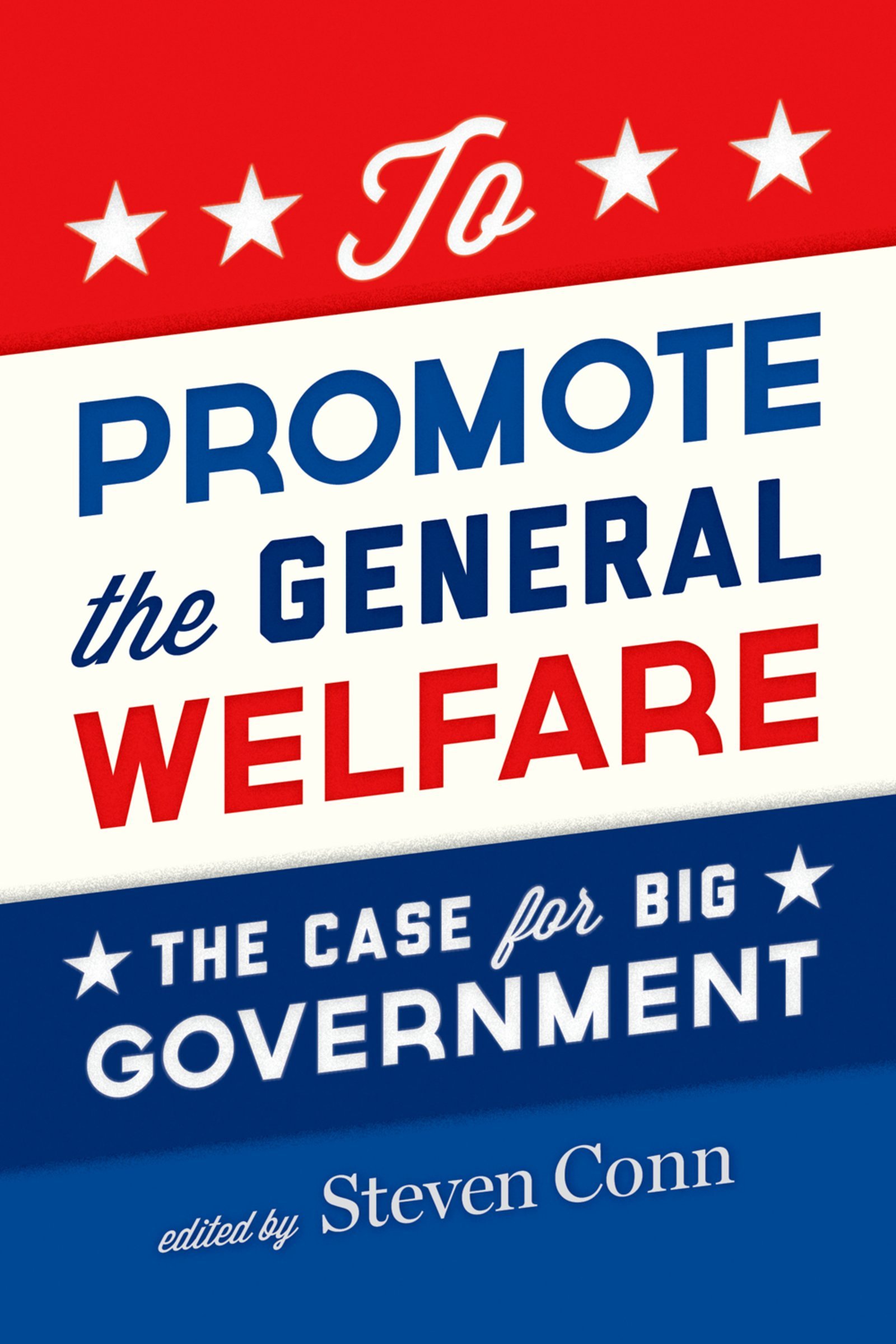To Promote the General Welfare: The Case for Big Government
by Steven Conn
New York: Oxford University Press, 2012, 256 pages
 I thought it was only classical liberals who ― when attempting to caricature socialists ― spoke of the government as a "saviour". I was wrong ― advocates of big government have become a parody of themselves.
I thought it was only classical liberals who ― when attempting to caricature socialists ― spoke of the government as a "saviour". I was wrong ― advocates of big government have become a parody of themselves.
To Promote the General Welfare: The Case for Big Government is a collection of essays defending the idea that government should play a dominant role in our lives. Steven Conn has brought several scholars together to write on a range of areas including transport, education, banking, housing and the arts.
The great tales of government success in To Promote the General Welfare fall well short of reality. Often, deep defects in government programs are papered over as mere teething problems. Complications are ironed out in the end and government always comes out as the good guy.
The immense failures of the US government over the years are either completely ignored or viewed through a warped lens where government can do no wrong. There is no mention of prohibition, the utterly embarrassing state of the US criminal justice system, the unintended consequences of massive ethanol subsidies or the costly war on terror.
The flawed perception of government as benevolent is far from a new idea. Nor is it novel to claim that policies which haven't worked are a result of implementation or funding issues rather than the philosophy behind the program itself. In fact, many of the examples of government programs examined in the book are reminiscent of Milton Friedman's famous observation that if a government program fails it receives additional funding.
But that's not all Friedman said. He went on to contrast government with private enterprise ― "if a private company fails it goes out of business". This simple message about competition is an idea that lies at the heart of the free market. It is perhaps unsurprising that advocates of big government ― who are hostile to the idea that problems can be solved through voluntary exchange and without government interference ― therefore feel compelled to attack it.
With a chapter title that could only come from a book advocating socialist ideals, "Transportation and the Uniting of a Nation" informs readers about the effects of deregulation of interstate transport. One of the most obvious positive outcomes was lower costs to the consumer. But we are also told about "bankruptcies, layoffs, slashed wages and ― for smaller markets and smaller shippers ― diminished service or higher rates". The argument is that free markets have both good and bad outcomes and government's essential role is to step in and fix the bad stuff.
For these authors, sometimes government doesn't even need to go that far. Just having some goals can be enough to pronounce success. A key George W. Bush legacy in education policy is the No Child Left Behind program. NCLB mandates testing children for proficiency in reading and math and penalises schools that fail to demonstrate improvement. Simply having the "goal of educational equality" is enough for the authors to give the federal government marks. This bizarre analysis leads the authors to make statements such as the following: "whether [NCLB] has 'worked' or not is in some sense beside the point: it has underscored the problem, which is always the first step towards solving it." Considering NCLB is the most expensive federal education program the US has ever embarked upon, the idea that it is simply an exercise in identifying a problem would fill even the mildest taxpayers with outrage.
Examples like this can be found throughout the book and they highlight the extremely shallow analysis that the authors have engaged in.
The authors have fallen into the same traps that big government advocates always fall into ― they emphasise the benefits of government programs without taking proper account of associated costs, they judge policies by intentions rather than outcomes and they think government spends money that grows on trees.
These fallacies add up to a complete mis-judgement of the success not only of particular programs but of government intervention overall.
The irony of this book is that government very rarely promotes general welfare ― and less so the bigger government becomes. We have hundreds of years of history and stacks of empirical evidence that clearly demonstrate this point. Instead, government hands out favours in accordance with the preferences of those who wield political influence.
The apparent paradox of the market is that the best way to promote general welfare is for individuals to pursue their own self-interest. The voluntary exchange between individuals that naturally arises has always been the best way of achieving both individual satisfaction and general welfare.
No comments:
Post a Comment